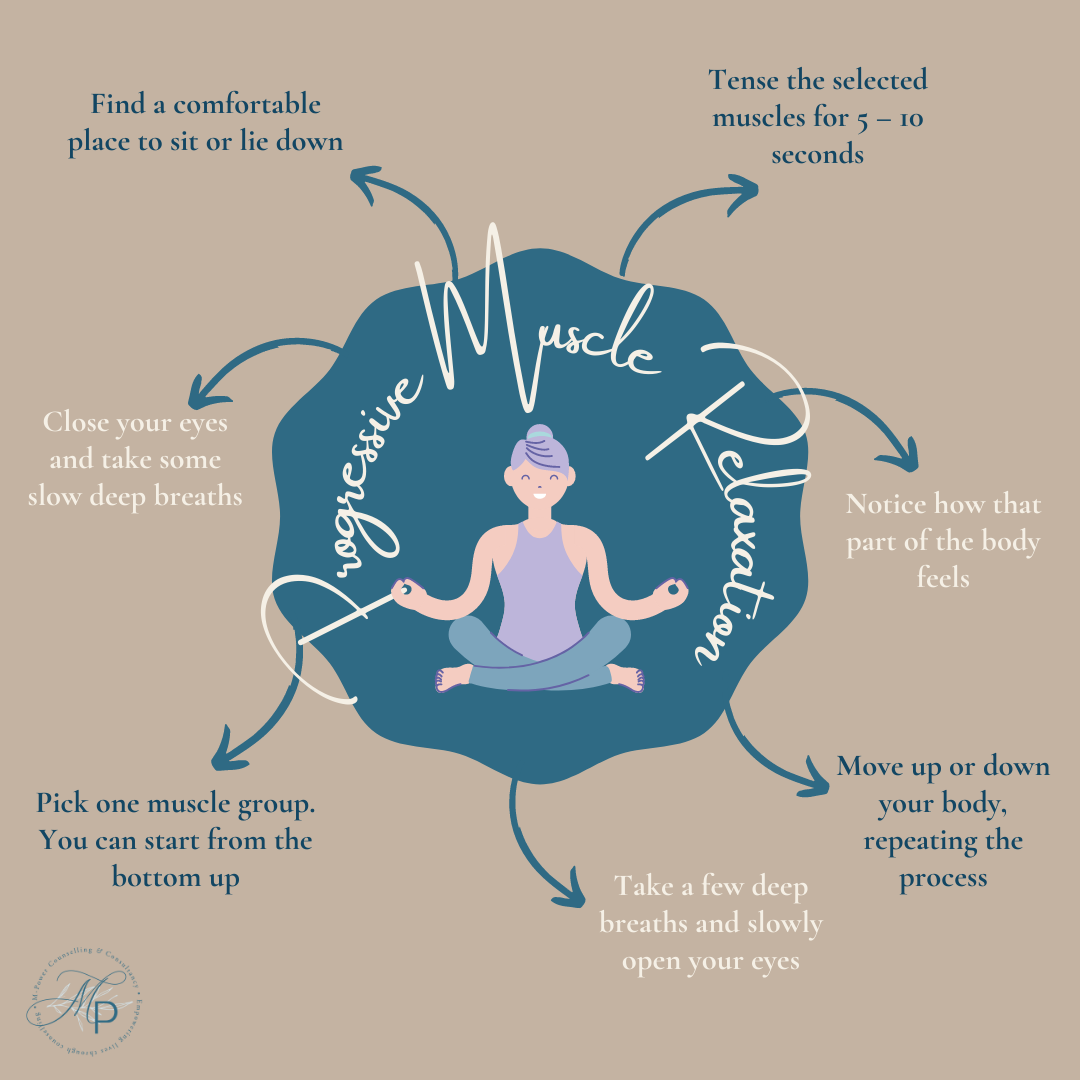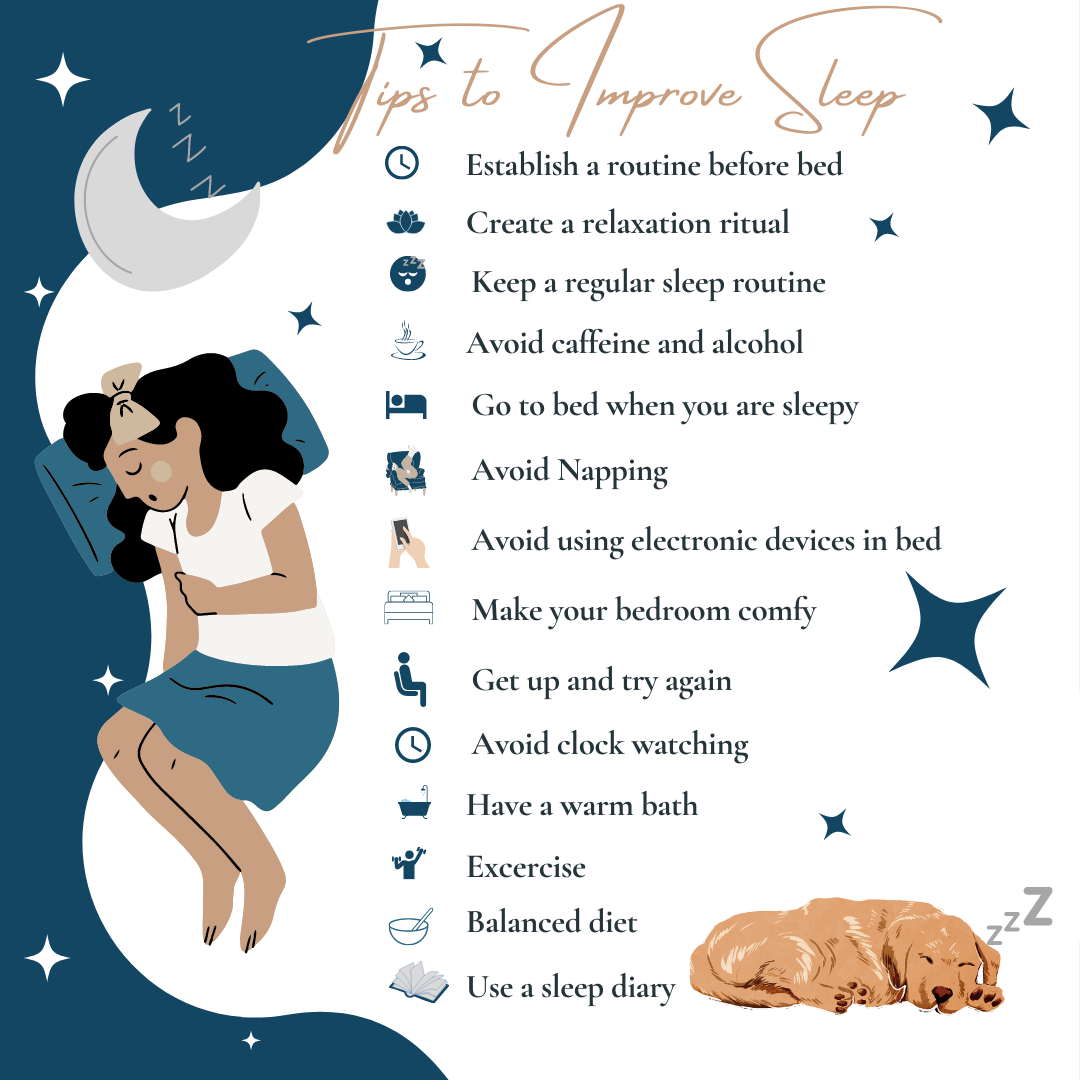It is common for individuals experiencing chronic pain, to experience stress and muscle tension in conjunction with anxiety, anger, and depression. This in turn can heighten their experience of chronic pain.
Research suggests that relaxation training such as progressive muscle relaxation, diaphragmatic breathing, mindfulness, and meditation can help individuals reduce stress, enhance relaxation states, improve pain, mental health, and overall well-being.
Progressive muscle relaxation (PMR)
Progressive muscle relaxation (PMR) is a simple yet effective technique for reducing stress and tension. It involves systematically tensing and then relaxing one group of muscles at a time.
You can do this exercise either sitting or lying down, and you can practice it, anywhere from once to several times a day. When you tense your muscles, try to do so firmly, but gently without causing yourself pain or discomfort.
Step 1: Find a comfortable place to sit or lie down.
Step 2: Close your eyes and take some slow deep breaths.
Step 3: Pick one muscle group. You can start from the bottom up.
Step 4: Tense the selected muscles for 5 – 10 seconds.
Step 5: Notice how that part of the body feels.
Step 6: Move up or down your body, repeating the process.
Step 7: Take a few deep breaths and slowly open your eyes.
Muscle groups to focus on during this exercise:
- Feet
- Legs
- Buttocks
- Abdomen
- Chest
- Shoulders
- Neck
- Hands
- Arms
- Mouth
- Forehead
- Cheeks
Progressive Muscle Relaxation (PMR) is based on the premise that overcoming physical tension can resolve mental distress. With regular practice PMR can lead to improved physical and emotional well-being.
So, why not try it out today?



